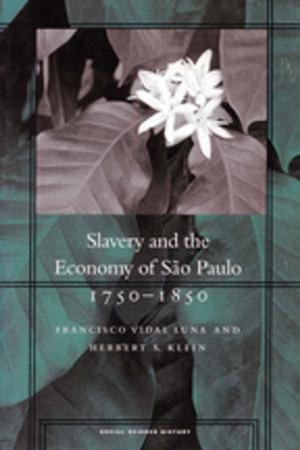| Author: | Joseph Love | ISBN: | 9780804783699 |
| Publisher: | Stanford University Press | Publication: | May 16, 2012 |
| Imprint: | Stanford University Press | Language: | English |
| Author: | Joseph Love |
| ISBN: | 9780804783699 |
| Publisher: | Stanford University Press |
| Publication: | May 16, 2012 |
| Imprint: | Stanford University Press |
| Language: | English |
This short book brings to life a unique and spectacular set of events in Latin American history. In November 1910, shortly after the inauguration of Brazilian President Hermes da Fonseca, ordinary sailors killed several officers and seized control of major new combat vessels, including two of the most powerful battleships ever produced, and commenced bombing Rio de Janeiro. The mutineers, led by an Afro-Brazilian and mostly black themselves, demanded greater rights—above all the abolition of flogging in the Brazilian navy, the last Western navy to tolerate it. This form of torture was closely associated in the sailors' minds with slavery, which had only been prohibited in Brazil in 1888. These events and the scandals that followed initiated a sustained debate about the role of race and class in Brazilian society and the extent to which Brazil could claim to be a modern nation. The commemoration of the centenary of the mutiny in 2010 saw the country still divided about the meaning of the Revolt of the Whip.
This short book brings to life a unique and spectacular set of events in Latin American history. In November 1910, shortly after the inauguration of Brazilian President Hermes da Fonseca, ordinary sailors killed several officers and seized control of major new combat vessels, including two of the most powerful battleships ever produced, and commenced bombing Rio de Janeiro. The mutineers, led by an Afro-Brazilian and mostly black themselves, demanded greater rights—above all the abolition of flogging in the Brazilian navy, the last Western navy to tolerate it. This form of torture was closely associated in the sailors' minds with slavery, which had only been prohibited in Brazil in 1888. These events and the scandals that followed initiated a sustained debate about the role of race and class in Brazilian society and the extent to which Brazil could claim to be a modern nation. The commemoration of the centenary of the mutiny in 2010 saw the country still divided about the meaning of the Revolt of the Whip.















